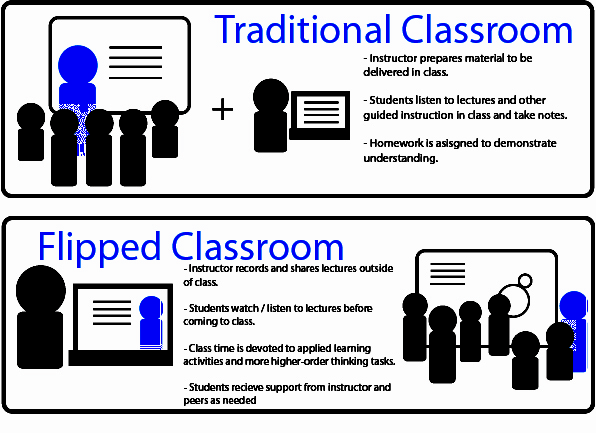Flipping your classroom
The Flipped Classroom model is an instruction model in which the classical model of teaching and homework are more or less reversed or ‘flipped’. Students follow the lesson prior to the lecture, usually in the form of short video clips. These are either clips that were recorded specifically for the relevant course unit or other online videos. The lecture itself is devoted to interaction and discussion between student and lecturer, or among students. To facilitate this process you can use digital tools such as online quizzes that are administered during the lecture. You can discuss the quiz results with your students or use the results to assess whether you need to explain a given topic one more time. Websites that can be used in this context include Mentimeter , Socrative and Kahoot .

How does it work?
Applying the Flipped Classroom model requires a great deal of preparation. Essentially, the course unit has to be redesigned, in particular with respect to the activities planned during and before contact moments. CLIQ can support you in this process, where possible with educational support from ESI (Educational Support and Innovation). You can create knowledge clips with support from CLIQ in collaboration with the AV Services department. A number of options are available in this context: See Using videos - knowledge clips .
How can you use it for teaching?
Students learn best when they can actively transform information into knowledge rather than passively absorbing information. One way to do this is by using the Flipped Classroom model. This approach relies heavily on IT tools such as short videos (‘knowledge clips’) and various tools such as question-and-answer programs that can be used during lectures.
The Board of the University has identified the Flipped Classroom as a focal point in its Strategic Plan 2015-2020 . The University of Groningen E-learning site contains a number of interesting articles on the Flipped Classroom that list the advantages and disadvantages of this model and include lecturers’ experiences.
| Last modified: | 23 September 2024 1.34 p.m. |
